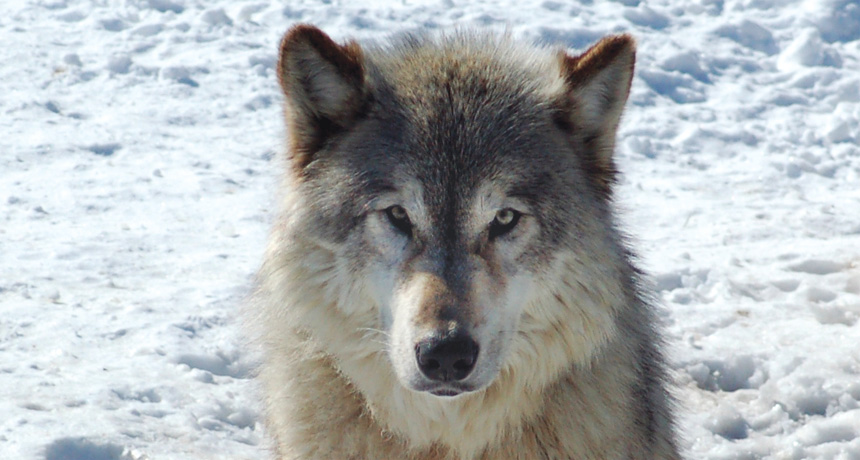
WOLF DOG Genetic analyses of various populations of living wolves from around the world suggest that modern dogs descend from a species of wolf that is now extinct.
Dobak/Flickr

WOLF DOG Genetic analyses of various populations of living wolves from around the world suggest that modern dogs descend from a species of wolf that is now extinct.
Dobak/Flickr